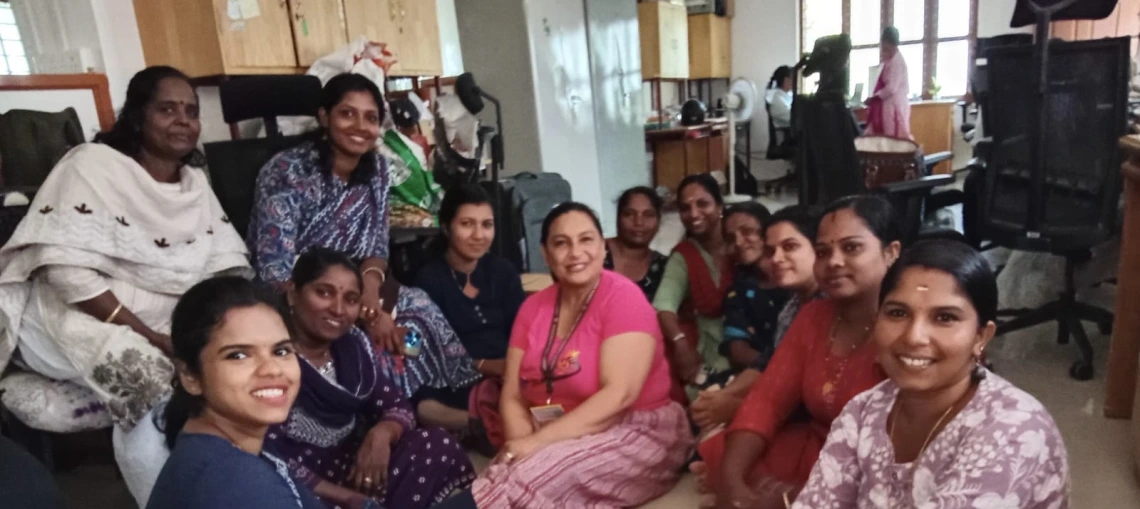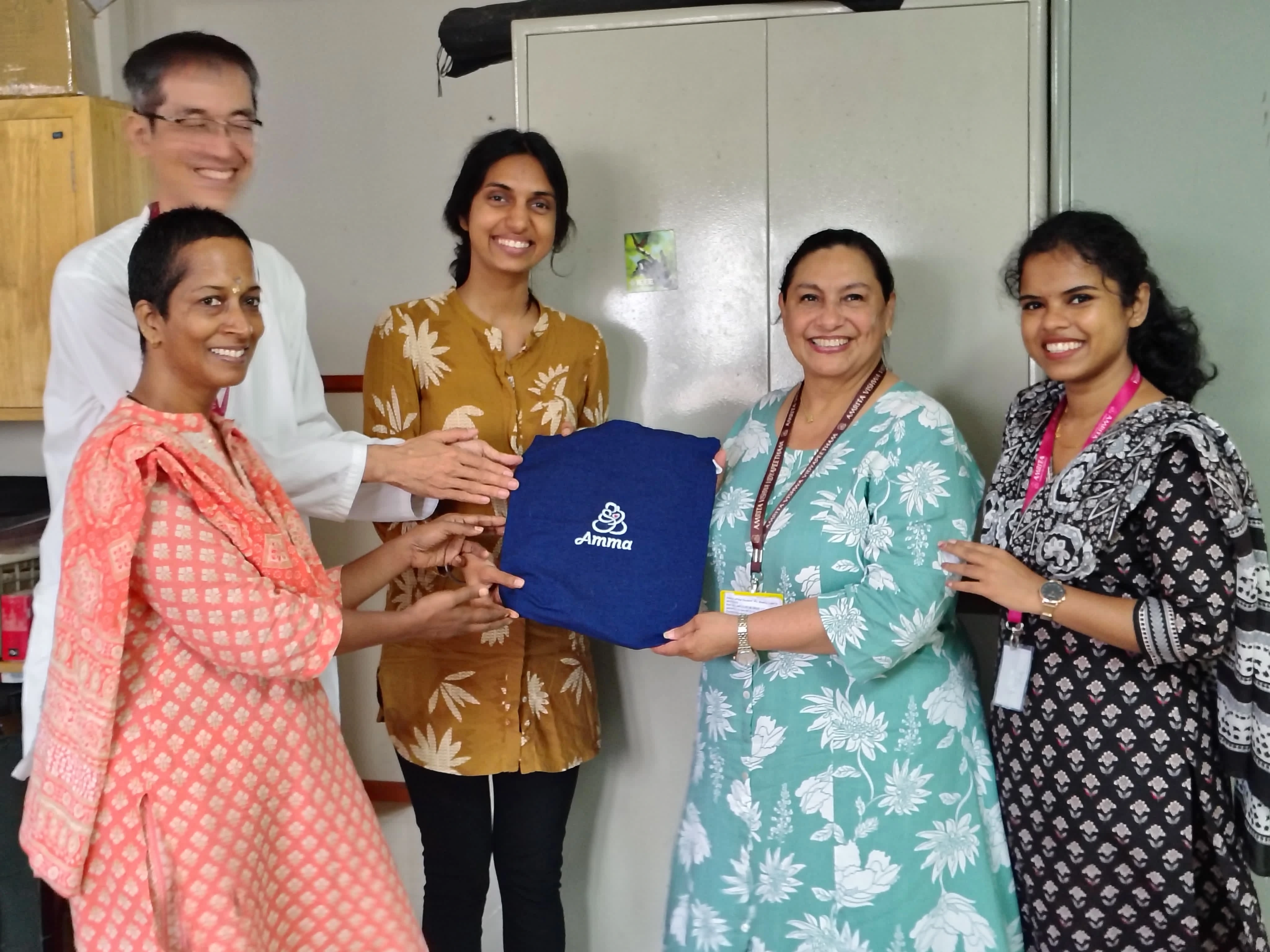Threads of Resilience: Lessons from Women Entrepreneurs in India

UA Human Rights Practice MA student Beatriz Winters Beatriz with members of the Sivasakthi Tailoring Unit.
This blogpost by Beatriz Winters reflects upon her recent internship at Amrita University; you can read more about other Human Rights Practice students who recently completed this internship funded by the RISE Program of the Arizona Institute of Resilience.
This summer, I joined two fellow University of Arizona Human Rights Practice students for an internship at Amrita Vishwa Vidyapeetham Live-in-Labs®. From the moment I arrived in Kerala, India, I was welcomed with warmth by the women of the Vishwamrit Self-Help Group. They weren’t just partners in the project; they quickly became cultural ambassadors, translators, teachers, and friends.
For two weeks, I traveled daily to the village of Karungapally, a small coastal community surrounded by the lush greenery and backwaters that Kerala is famous for. Life there is rooted in fishing, farming, and strong community ties, but what stood out most was the determination of the women to build something more for themselves and their families.
Our team worked alongside women entrepreneurs, building pathways to self-reliance. My role was to strengthen entrepreneurial skills and expand opportunities for women. I designed a workshop series I called “Cultivating My Own Path: From Farm Life to Entrepreneurship.” I drew from my personal journey of starting a coffee enterprise in Honduras, from modest beginnings in local production to eventually entering the U.S. export and retail market. Framing the sessions around real-life lessons gave the women a chance to see that building a business, while challenging, was possible when grounded in their own lived realities.

Amrita University team members presented Beatriz me with the farewell gift of a bag crafted by one of the women entrepreneur groups. Pictured from left to right, are Shalini, one of the interpreters; Jgyananand Sato, Strategy Consultant and Deputy Director of Admissions; Radhika Shetty, team leader; Beatriz; and Gayathry, the main interpreter for Beatriz.
The sessions were interactive by design. Through group discussions, brainstorming, and hands-on activities, participants identified their entrepreneurial goals, mapped out obstacles in their way, and developed practical strategies to move forward. More importantly, they reflected on how their businesses could make a difference not just for themselves, but for their families and communities. Many spoke about reinvesting profits into education for their children, supporting their households, or helping other women start ventures of their own.
After completing my own Activity Clock, I asked them to create theirs. The goal was to help them recognize that, as wives, mothers, and entrepreneurs, we all face similar demands and expectations from our families. We then came together to discuss strategies for managing the challenges and stress that arise from balancing both family and business responsibilities.
What unfolded was inspiring. These women were not only learning business concepts—they were embracing new roles as decision-makers, leaders, and innovators. Their confidence grew as they began to recognize the value of their skills and the power of their voices. They gained more than tools to improve their livelihoods; they gained recognition, self-respect, and a stronger sense of dignity within their families and communities. This shift in perception, from both the women and those around them, represents a profound step toward gender equity and aligns directly with the principles of the UN Convention on the Elimination of All Forms of Discrimination Against Women (CEDAW).
On a personal level, this experience was transformative. No classroom or textbook could have taught me what I learned by standing in the field, adapting quickly, and applying my academic training in real time. It reminded me that human rights practice is not limited to documenting violations; it is also about fostering education, promoting economic opportunity, and supporting resilience. These women showed me that human rights work is woven into many aspects of life.
Beatriz Winters is a student in the Human Rights Practice MA.
Related stories:
Building Coastal Resilience and Women's Empowerment: My Internship at Amrita University by Anusha Sharma
RISE Internship Lessons in India: Building Life and Career Skills Experientially by Aaron Womack

